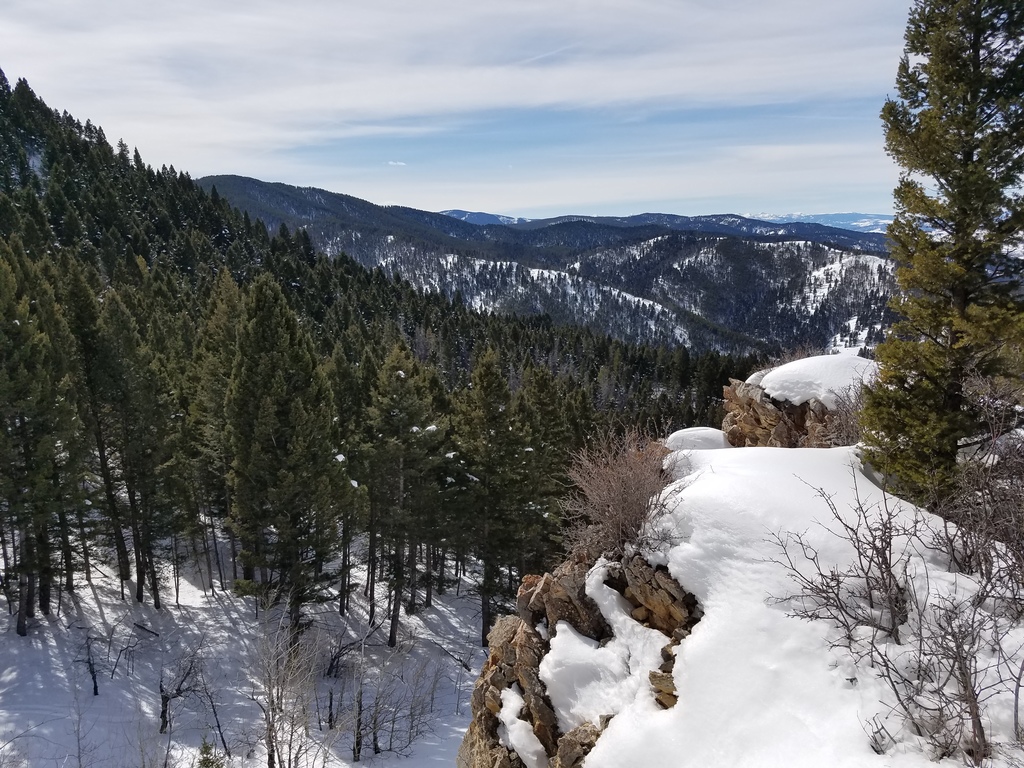We take our environment seriously in Bozeman. It’s the reason many of us live here. So it’s no surprise that timber sales like the proposed Limestone West project south of town create concern for some Bozemanites. How would it impact our prized water and wildlife? And what about our scenic views?
At issue is the Montana Department of Natural Resources and Conservation’s plan to cut timber on 730 acres near Mount Ellis. The harvest would occur on state trust lands, which are lands granted to Montana during statehood for the purpose of generating revenue for beneficiaries such as public schools and universities. The state has a legal obligation outlined in its constitution to manage trust lands for these purposes.
The timber sale proposal has drawn opposition from several parties. Save Limestone West, a group largely made up of residents from the Triple Tree and Eagle Rock subdivisions, argues that the harvest would ruin their views. They have organized to stop the timber sale — an outcome that could prevent the state from meeting its responsibility to generate revenue for its trust beneficiaries.
Therein lies the fundamental issue: The state has a legal obligation to earn revenue from trust lands, but some groups would prefer that the trees in Limestone Creek remain standing. Is there a way forward?
There is: buy it. The groups opposed to the timber sale should come together and pay the state not to cut the timber. In other words, they should compensate the state trust beneficiaries for the foregone revenue from the proposed timber sale. This could be done by bidding for a viewshed easement or conservation lease from the DNRC, similar to how land trusts purchase conservation easements from willing landowners. In this way, the state could fulfill its mandate to earn money for trust beneficiaries and the forest would remain intact — a win-win deal.
Think it can’t be done? A similar buy-out arrangement happened on state trust lands at Spencer Mountain near Whitefish in 2013. The community came together to purchase a recreational use license from the DNRC to protect and enhance a network of popular trails from the effects of several proposed timber sales. Led by the nonprofit Whitefish Legacy Partners, the deal preserves some of the best freeride mountain biking trails in the state while ensuring that trust lands generate a return for local schools. A similar easement on the Whitefish Trail in the Beaver Lake area provides recreation access to trust lands while providing revenue for Montana’s schools and universities.
There is no reason a similar approach could not work in the case of the Limestone West project. The state outlines a process for bidding on what it calls a “timber conservation license in lieu of timber sale.” All that is needed is an innovative group to organize around the idea and a willingness to look beyond the strategies that are typically used to halt timber sales, such as costly litigation and “analysis paralysis.”
A conservation license may not cost all that much. A similar timber sale on trust lands in 2012 in Bear Canyon earned nearly $800,000 for trust beneficiaries. Conservation organizations routinely pay much more to protect important lands from development, and the particular neighborhoods that claim they will be affected should have no problem raising the cash.
Conservation isn’t free. We should stop pretending like it is. State trust lands have a clear and longstanding mandate to generate revenue. But they also offer an alternative, market-based way to resolve conflicting demands over land-use decisions — one that doesn’t depend on endless litigation as in the case of the Bozeman Municipal Watershed project. The deadline to submit a notice of intent to request a timber conservation license for the Limestone West project is August 8.
Call it enviro-capitalism or free-market environmentalism if you’d like – what matters is that it works, as long as people are willing to recognize others’ rights, look beyond the zero-sum political process, and start thinking outside the box.
This article originally appeared in the Bozeman Daily Chronicle.




